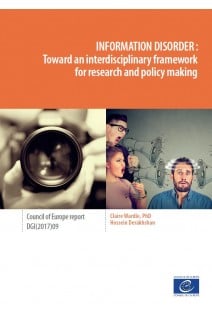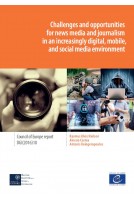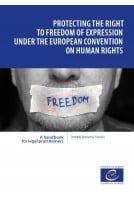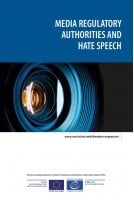



Contemporary social technology means that we are witnessing something new: information pollution at a global scale. How do we begin to address information pollution?
This report provides a new framework for policy-makers, legislators, researchers, technologists and practitioners working on the theoretical and practical challenges related to mis-, dis- and mal-information — the three elements of information disorder. While the historical impact of rumours and fabricated content have been well documented, the complexity and scale of information pollution in our digitally-connected, increasingly polarised world presents an unprecedented challenge. There is an immediate need to work collaboratively on workable solutions and this report provides a framework for the different stakeholders involved in research, policy discussions, and technical innovations connected to this phenomenon of information disorder.
After 2017's attention to #fakenews & fractured trust, is mainstream media making a comeback? Listen to Claudia Luciani's report on #CoE #IGF2017 panel. Background https://t.co/AZKxsIOVNg pic.twitter.com/0on1IisyI0
— Council of Europe (@coe) 19 décembre 2017
Author Biographies
Executive Summary
Introduction
Part 1: Conceptual Framework
The Three Types of Information Disorder
The Phases and Elements of Information Disorder
The Three Phases of Information Disorder
The Three Elements of Information Disorder
1) The Agents: Who are they and what motivates them?
2) The Messages: What format do they take?
3) Interpreters: How do they make sense of the messages?
Part 2: Challenges of filter bubbles and echo chambers
Part 3: Attempts at solutions
Part 4: Future trends
Part 5: Conclusions
Part 6: Recommendations
Appendix: European Fact-checking and Debunking Initiatives
References




Contemporary social technology means that we are witnessing something new: information pollution at a global scale. How do we begin to address information pollution?
This report provides a new framework for policy-makers, legislators, researchers, technologists and practitioners working on the theoretical and practical challenges related to mis-, dis- and mal-information — the three elements of information disorder. While the historical impact of rumours and fabricated content have been well documented, the complexity and scale of information pollution in our digitally-connected, increasingly polarised world presents an unprecedented challenge. There is an immediate need to work collaboratively on workable solutions and this report provides a framework for the different stakeholders involved in research, policy discussions, and technical innovations connected to this phenomenon of information disorder.
After 2017's attention to #fakenews & fractured trust, is mainstream media making a comeback? Listen to Claudia Luciani's report on #CoE #IGF2017 panel. Background https://t.co/AZKxsIOVNg pic.twitter.com/0on1IisyI0
— Council of Europe (@coe) 19 décembre 2017
